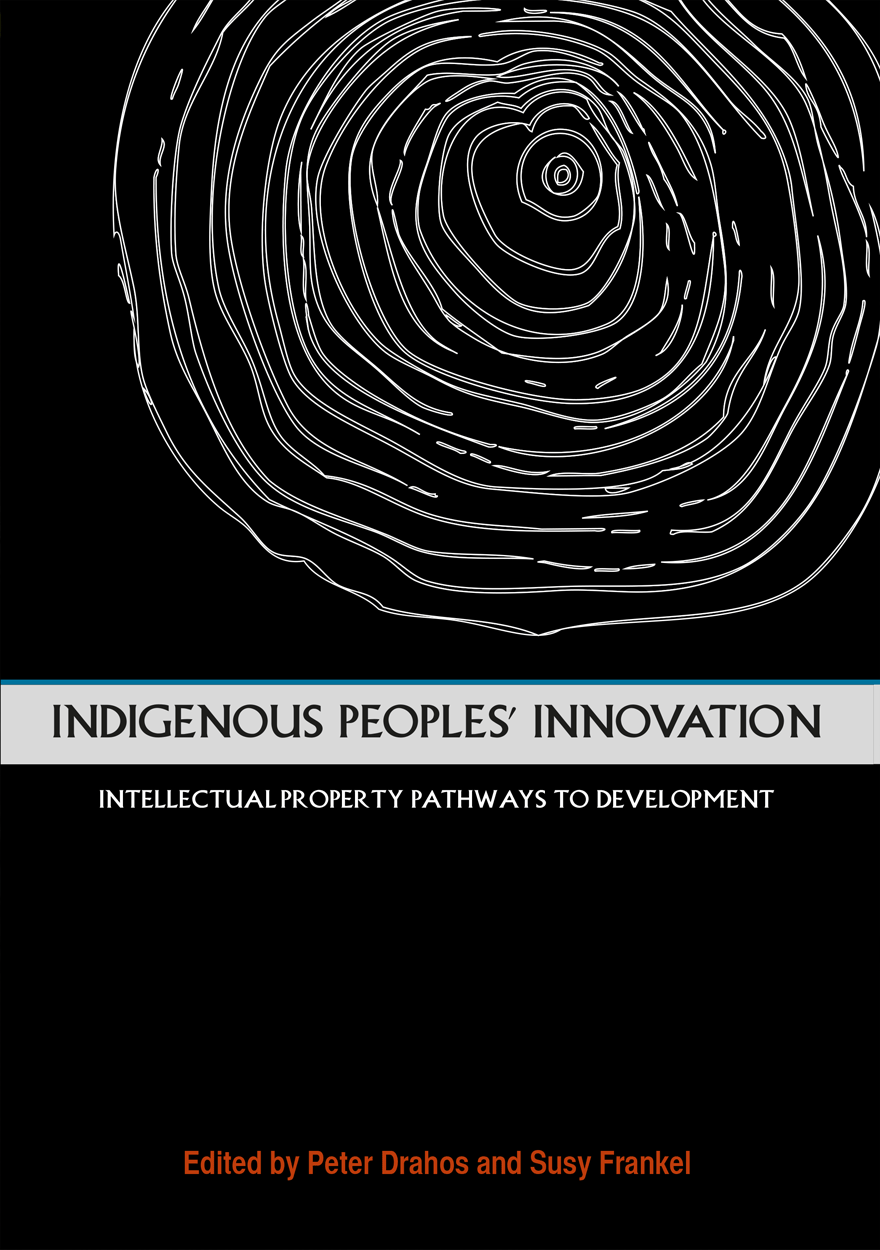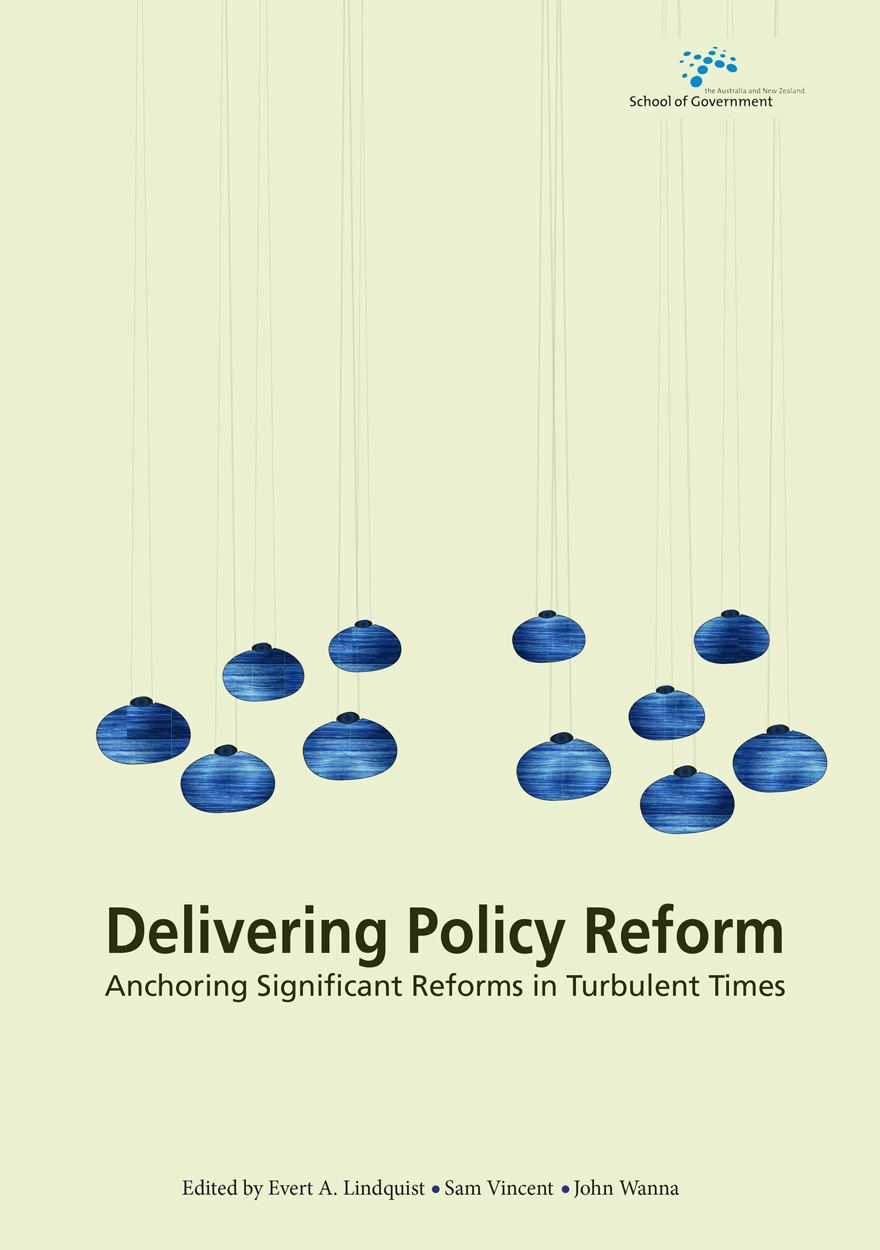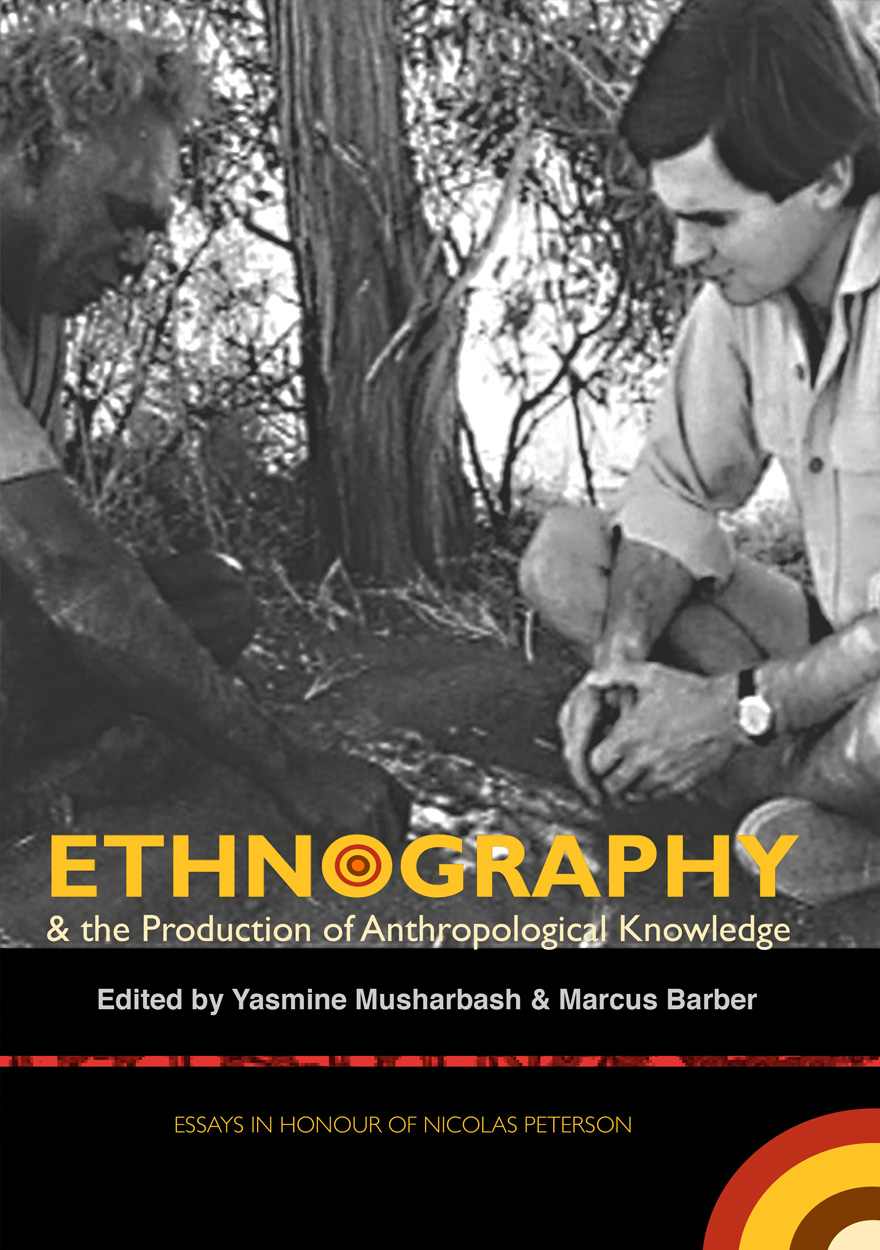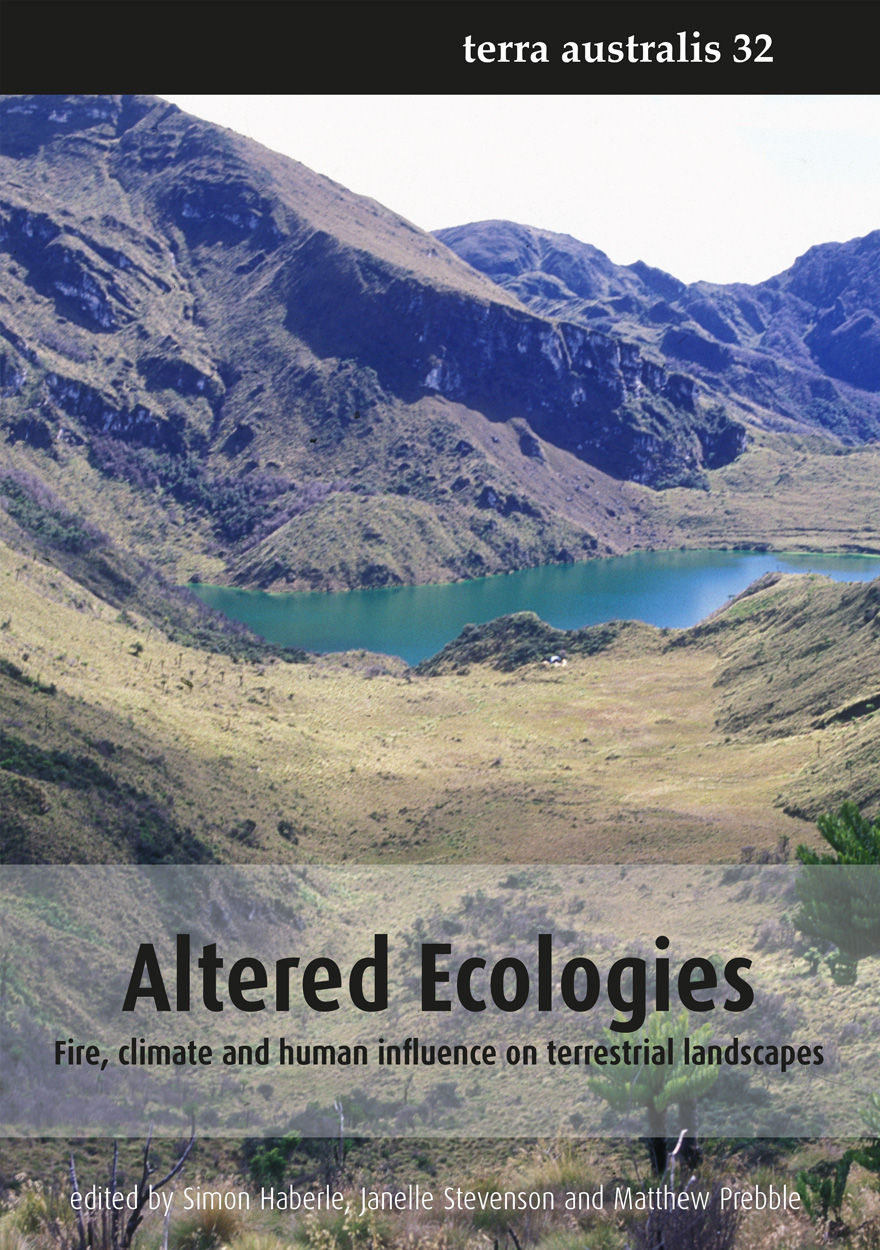Search titles
Displaying results 41 to 50 of 91.

Australian Humanities Review: Issue 52, 2012 »
Edited by: Monique Rooney, Russell Smith
Publication date: September 2012
Australian Humanities Review is a peer-reviewed interdisciplinary journal featuring articles, essays and reviews focusing on a wide array of topics related to literature, culture, history and politics.
Download for free
Not available for purchase

Indigenous Peoples' Innovation »
Intellectual Property Pathways to Development
Edited by: Peter Drahos, Susy Frankel
Publication date: August 2012
Traditional knowledge systems are also innovation systems. This book analyses the relationship between intellectual property and indigenous innovation. The contributors come from different disciplinary backgrounds including law, ethnobotany and science. Drawing on examples from Australia, New Zealand and the Pacific Islands, each of the contributors explores the possibilities and limits of intellectual property when it comes to supporting innovation by indigenous people.

Peopled Landscapes »
Archaeological and Biogeographic Approaches to Landscapes
Edited by: Simon G. Haberle, Bruno David
Publication date: January 2012
This impressive collection celebrates the work of Peter Kershaw, a key figure in the field of Australian palaeoenvironmental reconstruction. Over almost half a century his research helped reconceptualize ecology in Australia, creating a detailed understanding of environmental change in the Late Pleistocene and Holocene. Within a biogeographic framework one of his exceptional contributions was to explore the ways that Aboriginal people may have modified the landscape through the effects of anthropogenic burning. These ideas have had significant impacts on thinking within the fields of geomorphology, biogeography, archaeology, anthropology and history. Papers presented here continue to explore the dynamism of landscape change in Australia and the contribution of humans to those transformations. The volume is structured in two sections. The first examines evidence for human engagement with landscape, focusing on Australia and Papua New Guinea but also dealing with the human/environmental histories of Europe and Asia. The second section contains papers that examine palaeoecology and present some of the latest research into environmental change in Australia and New Zealand. Individually these papers, written by many of Australia’s prominent researchers in these fields, are significant contributions to our knowledge of Quaternary landscapes and human land use. But Peopled Landscapes also signifies the disciplinary entanglement that is archaeological and biogeographic research in this region, with archaeologists and environmental scientists contributing to both studies of human land use and palaeoecology. Peopled Landscapes reveals the interdisciplinary richness of Quaternary research in the Australasian region as well as the complexity and richness of the entangled environmental and human pasts of these lands.
— Prof. Peter Hiscock, The Australian National University

Scholars at War »
Australasian Social Scientists, 1939–1945
Edited by: Geoffrey Gray, Doug Munro, Christine Winter
Publication date: January 2012
Scholars at War is the first scholarly publication to examine the effect World War II had on the careers of Australasian social scientists. It links a group of scholars through geography, transnational, national and personal scholarly networks, and shared intellectual traditions, explores their use, and contextualizes their experiences and contributions within wider examinations of the role of intellectuals in war.
Scholars at War is structured around historical portraits of individual Australasian social scientists. They are not a tight group; rather a cohort of scholars serendipitously involved in and affected by war who share a point of origin. Analyzing practitioners of the social sciences during war brings to the fore specific networks, beliefs and institutions that transcend politically defined spaces. Individual lives help us to make sense of the historical process, helping us illuminate particular events and the larger cultural, social and even political processes of a moment in time.
Contributors include Peter Hempenstall, JD Legge, Jock Phillips, John Pomeroy, Cassandra Pybus, David Wetherell, Janet Wilson.

Māori and Aboriginal Women in the Public Eye »
Representing Difference, 1950–2000
Authored by: Karen Fox
Publication date: December 2011
From 1950, increasing numbers of Aboriginal and Māori women became nationally or internationally renowned. Few reached the heights of international fame accorded Evonne Goolagong or Dame Kiri Te Kanawa, and few remained household names for any length of time. But their growing numbers and visibility reflected the dramatic social, cultural and political changes taking place in Australia and New Zealand in the second half of the twentieth century.
This book is the first in-depth study of media portrayals of well-known Indigenous women in Australia and New Zealand, including Goolagong, Te Kanawa, Oodgeroo Noonuccal and Dame Whina Cooper. The power of the media in shaping the lives of individuals and communities, for good or ill, is widely acknowledged. In these pages, Karen Fox examines an especially fascinating and revealing aspect of the media and its history — how prominent Māori and Aboriginal women were depicted for the readers of popular media in the past.

Pacific Island Heritage »
Archaeology, Identity & Community
Edited by: Jolie Liston, Geoffrey Clark, Dwight Alexander
Publication date: November 2011
‘This volume emerges from a ground-breaking conference held in the Republic of Palau on cultural heritage in the Pacific. It includes bold investigations of the role of cultural heritage in identity-making, and the ways in which community engagement informs heritage management practices. This is the first broad and detailed investigation of the unique and irreplaceable cultural heritage of the Pacific from a heritage management perspective. It identifies new trends in research and assesses relationships between archaeologists, heritage managers and local communities. The methods which emerge from these relationships will be critical to the effective management of heritage sites in the 21st century. A wonderful book which emerges from an extraordinary conference. Essential reading for cultural heritage managers, archaeologists and others with an interest in caring for the unique cultural heritage of the Pacific Islands.’
— Professor Claire Smith, President World Archaeological Congress

Delivering Policy Reform »
Anchoring Significant Reforms in Turbulent Times
Publication date: April 2011
Predictable and unpredictable challenges continually confront the policy settings and policy frameworks of governments. They provide a constantly changing dynamic within which policy-making operates. Governments at all levels are asking their public services to identify innovative and workable reforms to anticipate and address these challenges. Public service leaders around the world are struggling not only to better anticipate emerging demands but also to address reform backlogs. However, time and time again, major policy reforms can prove tough to implement – especially in turbulent environments – and even tougher to anchor over time. This leads to considerable uncertainty and inefficiency as governments and policy communities try to keep pace with change. Policies that unravel or are dismantled are costly and represent wasted opportunities. They lead to cynicism about the effectiveness of governments and public service advice more generally, making it more difficult to deal with other emerging challenges.
This volume of proactive essays on delivering policy reform offers an intriguing blend of strategic policy advice and management insight. It brings together a diverse range of highquality contributors from overseas as well as from Australia and New Zealand – including national political leaders, public service executives, heads of independent agencies, and leading international scholars.

Ethnography & the Production of Anthropological Knowledge »
Essays in honour of Nicolas Peterson
Edited by: Yasmine Musharbash, Marcus Barber
Publication date: February 2011
Professor Nicolas Peterson is a central figure in the anthropology of Aboriginal Australia. This volume honours his anthropological body of work, his commitment to ethnographic fieldwork as a source of knowledge, his exemplary mentorship of generations of younger scholars and his generosity in facilitating the progress of others. The diverse collection produced by former students, current colleagues and long-term peers provides reflections on his legacy as well as fresh anthropological insights from Australia and the wider Asia-Pacific region. Inspired by Nicolas Peterson’s work in Aboriginal Australia and his broad ranging contributions to anthropology over several decades, the contributors to this volume celebrate the variety of his ethnographic interests. Individual chapters address, revisit, expand on, and ethnographically re-examine his work about ritual, material culture, the moral domestic economy, land and ecology. The volume also pays homage to Nicolas Peterson’s ability to provide focused research with long-term impact, exemplified by a series of papers engaging with his work on demand sharing and the applied policy domain.

Altered Ecologies »
Fire, climate and human influence on terrestrial landscapes
Edited by: S. Haberle, J. Stevenson, M. Prebble
Publication date: November 2010
Like a star chart this volume orientates the reader to the key issues and debates in Pacific and Australasian biogeography, palaeoecology and human ecology. A feature of this collection is the diversity of approaches ranging from interpretation of the biogeographic significance of plant and animal distributional patterns, pollen analysis from peats and lake sediments to discern Quaternary climate change, explanation of the patterns of faunal extinction events, the interplay of fire on landscape evolution, and models of the environmental consequences of human settlement patterns. The diversity of approaches, geographic scope and academic rigor are a fitting tribute to the enormous contributions of Geoff Hope. As made apparent in this volume, Hope pioneered multidisciplinary understanding of the history and impacts of human cultures in the Australia- Pacific region, arguably the globe’s premier model systems for understanding the consequences of human colonization on ecological systems. The distinguished scholars who have contributed to this volume also demonstrate Hope’s enduring contribution as an inspirational research leader, collaborator and mentor. Terra Australis leave no doubt that history matters, not only for land management, but more importantly, in alerting settler and indigenous societies alike to their past ecological impacts and future environmental trajectories.

Timing is Everything »
The Politics and Processes of New Zealand Defence Acquisition Decision Making
Authored by: Peter Greener
Publication date: October 2009
This book identifies the critical factors that shaped and influenced New Zealand’s defence acquisition decision-making processes from the election of the Fourth Labour Government in 1984 and the subsequent ANZUS crisis, through to the 11 September 2001 terrorist attacks on the United States and the following ‘war on terror’. It explores and analyses decision-making processes in relation to the ANZAC frigates, the military sealift ship HMNZS Charles Upham, the F-16 strike aircraft, the P-3C Orion maritime patrol aircraft upgrade, and the LAV IIIs.



